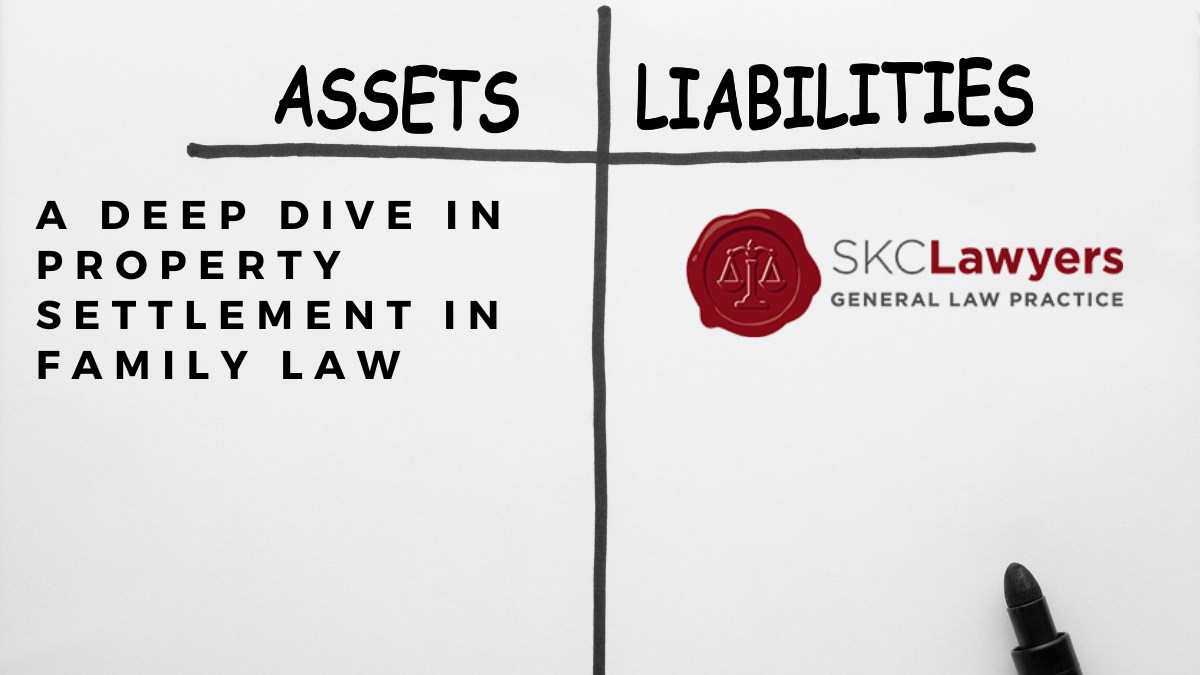Property settlement is a crucial aspect of family law, determining how assets and liabilities are divided after separation or divorce. This process ensures financial fairness between both parties and helps establish a stable foundation for the future. However, property settlement can be complex, particularly when disagreements arise over financial contributions, future needs or existing agreements like prenuptial and postnuptial agreements. Understanding the legal framework and seeking professional advice can make the process smoother and more equitable.
Understanding Property Settlement
Property settlement is the legal process of dividing assets and liabilities between separating partners. It aims to fairly distribute financial resources while considering contributions made during the relationship. Assets may include real estate, savings, superannuation, businesses and investments, while liabilities cover debts, loans and other financial obligations.
The process also considers shared financial contributions, both direct and indirect, such as income, property purchases, homemaking efforts and child-rearing responsibilities. The goal is to reach an agreement that reflects fairness, financial stability and long-term security for both parties.
Key Factors in Property Settlement
Establishing the Asset Pool
One of the most important steps in property settlement is determining the total asset pool. This involves listing all assets and liabilities to ensure a complete financial overview. The asset pool serves as the foundation for negotiations and legal assessments, helping both parties and their legal representatives work towards an equitable resolution.
Role of Prenuptial and Postnuptial Agreements
A prenuptial agreement (prenup) and a postnuptial agreement play a significant role in property settlement. A prenup is signed before marriage or a de facto relationship, outlining how assets and liabilities will be divided in case of separation. A postnuptial agreement serves a similar function but is created after the relationship has begun. These agreements can help avoid disputes and provide clarity, reducing the emotional and financial strain of settlement negotiations.
Future Needs and Financial Capacity
The court also considers future financial needs when determining property settlements. Factors such as income disparity, health conditions, child custody arrangements, and earning capacity are assessed to ensure fairness. If one party has significantly lower financial prospects, they may receive a larger share of the asset pool to maintain financial stability.
Navigating the Legal Process
The property settlement process follows specific legal steps under Australian family law. It generally includes:
- Identifying Assets and Liabilities – Listing all financial resources and obligations.
- Assessing Contributions – Reviewing financial and non-financial contributions from both parties.
- Considering Future Needs – Evaluating factors like income potential, caregiving responsibilities, and overall financial stability.
- Negotiation and Agreement – Attempting to reach a fair settlement through mediation or lawyer-assisted discussions.
- Legal Finalisation – If an agreement is reached, it can be formalised through a legally binding financial agreement or court order. If disputes persist, the case may proceed to court for resolution.
Consulting an experienced family lawyer ensures that property settlements are handled efficiently, protecting your interests and securing a fair outcome.
Achieving a fair and transparent property settlement is essential for financial stability after separation. With factors like asset division, prenuptial and postnuptial agreements, and future needs influencing the process, legal expertise is invaluable.
If you need professional guidance on property settlement, SKC Lawyers in Logan City can provide advice tailored to your circumstances. Contact us today to discuss your situation and secure the best possible outcome.

